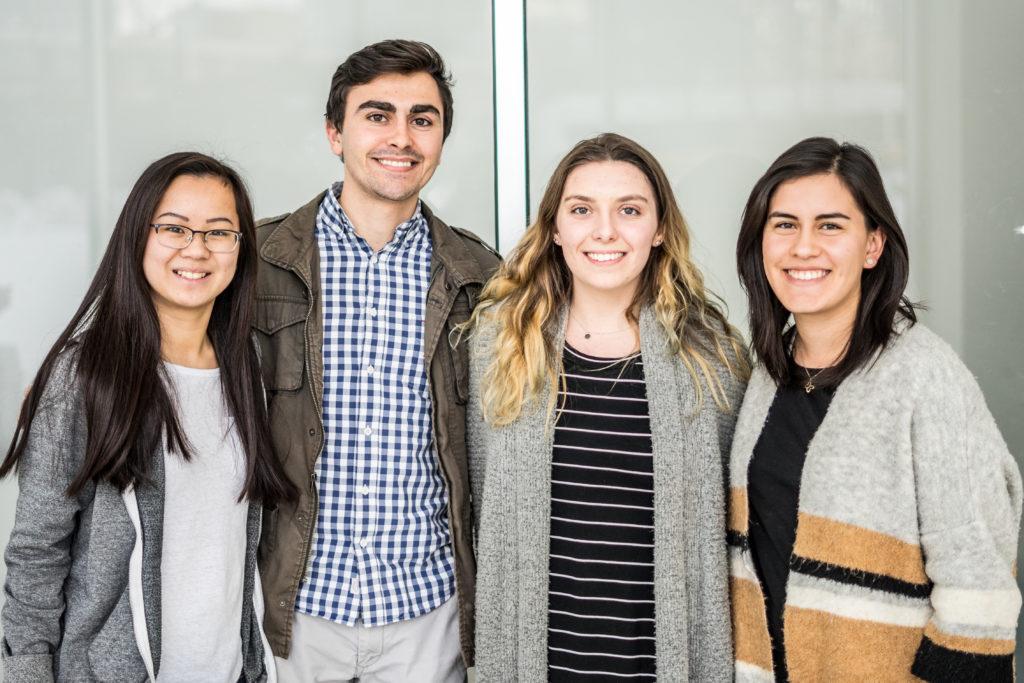By Derek Schuster and Glenn Billman, news staff
Boston-based startup Soli is trying to make reducing carbon emissions as easy as spending irresponsibly.
Founder and Soli Chief Executive Officer Robert MacArthur, a 92-year-old West Cambridge, Massachusetts, resident, has worked on tying consumer habits to fighting climate change for 10 years. He decided that the best way to entice everyday people to reduce carbon emissions was to combine it with a cash-back program.
“We looked at this a few years ago and decided it was time to engage consumers in a reward program, so instead of them having to pay to create environmental impact, they would get paid for doing it,” MacArthur said. “And the best way to do that was to tie their shopping behavior in with a coupon or a points program that upon each purchase would effectively lower their carbon footprint and give some money back.”
Soli aims to reduce carbon dioxide emissions by partnering with retailers and using a portion of the money users spend through the Soli app to purchase carbon credits. The amount of carbon dioxide companies can emit is capped by the government, and carbon credits are the permits which allow the owner to pollute that amount of carbon dioxide. By buying carbon credits on behalf of their customers but not using them to pollute, Soli is able to retire that amount of carbon and reduce the amount of the gas released.
For every dollar spent at one of Soli’s corporate partners, customers receive 1 percent back and retire two pounds of carbon dioxide via carbon credits. Soli currently partners with 55 local retail stores, including Fogo de Chão and Quality Mart, and more than 200 affiliate partners, such as Amazon. The companies are able to promote discounts through Soli’s app, but pay a commission on purchases made by their customers. That money then pays for the carbon credits and cash back bonuses.
“Basically it’s the commercial enterprises who are paying for this, and they’re willing to pay for it because by so doing, they’re gaining new customers and retaining existing customers,” MacArthur said. “And they are also benefiting their corporate social responsibility initiatives.”
Abigale Purvis, a freshman international business major and an intern at the company, said she is glad Soli is tapping into consumerism’s influence.
“I feel like that’s really one of our strengths as a body of humans, is we have so much power in our consumerism that we don’t really realize,” Purvis said. “I feel like it’s a powerful thing that we can grab onto and utilize and direct toward some good.”
The Environmental Protection Agency reported the United States emitted 6,870 million metric tons of carbon dioxide in 2014. Two pounds of carbon dioxide is negligible considering the average person emits 19.8 metric tons per year according to The Guardian, but MacArthur said that it becomes significant with enough users.
“[Two pounds per dollar] is a fairly arbitrary metric, but it’s meaningful over a period of time because we accumulate all these points for you,” MacArthur said. “You could easily remove a couple of tons from the atmosphere or more per year, depending on your buying behavior.”
Within a few years, Soli aims to have enough users to annually retire an amount of carbon dioxide equivalent to the emissions of 2 million cars. 2015 Northeastern alumnus Robbie Madfis, who currently serves as Soli’s chief product officer, said the company plans to have 7 million users within the next five years.
Madfis joined Soli to help create a meaningful solution to climate change. He said that he believes there needs to be a significant market for carbon offsets that is only for retiring them, not using them.
“Anyone kind of familiar with the problem realizes that not enough is being done and we’re starting to run out of time,” Madfis said. “I wanted to find a way to get involved and really have an impact.”
Currently, the company is focusing its outreach efforts on universities by hiring on-campus representatives who have helped to spread the word around their respective campuses.
“Working with universities fits really well with us because right now universities have a huge focus on sustainability,” Madfis said. “Virtually every university has some sort of carbon remediation goal.”









